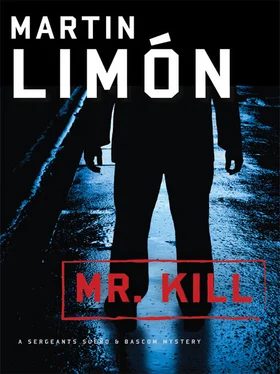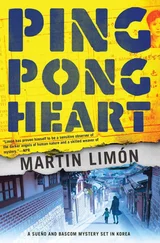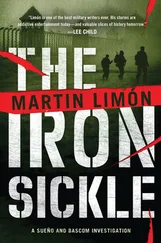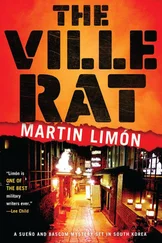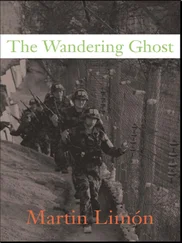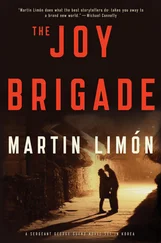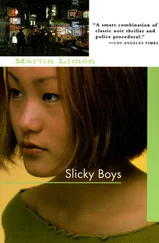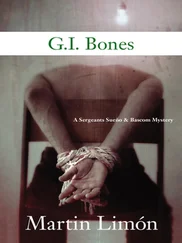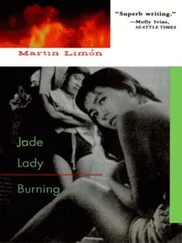Martin Limon - Mr. Kill
Здесь есть возможность читать онлайн «Martin Limon - Mr. Kill» весь текст электронной книги совершенно бесплатно (целиком полную версию без сокращений). В некоторых случаях можно слушать аудио, скачать через торрент в формате fb2 и присутствует краткое содержание. Жанр: Полицейский детектив, на английском языке. Описание произведения, (предисловие) а так же отзывы посетителей доступны на портале библиотеки ЛибКат.
- Название:Mr. Kill
- Автор:
- Жанр:
- Год:неизвестен
- ISBN:нет данных
- Рейтинг книги:4 / 5. Голосов: 1
-
Избранное:Добавить в избранное
- Отзывы:
-
Ваша оценка:
- 80
- 1
- 2
- 3
- 4
- 5
Mr. Kill: краткое содержание, описание и аннотация
Предлагаем к чтению аннотацию, описание, краткое содержание или предисловие (зависит от того, что написал сам автор книги «Mr. Kill»). Если вы не нашли необходимую информацию о книге — напишите в комментариях, мы постараемся отыскать её.
Mr. Kill — читать онлайн бесплатно полную книгу (весь текст) целиком
Ниже представлен текст книги, разбитый по страницам. Система сохранения места последней прочитанной страницы, позволяет с удобством читать онлайн бесплатно книгу «Mr. Kill», без необходимости каждый раз заново искать на чём Вы остановились. Поставьте закладку, и сможете в любой момент перейти на страницу, на которой закончили чтение.
Интервал:
Закладка:
The man leaned back and smiled. “My name is Gil,” he said. “Gil Kwon-up. Chief Homicide Inspector of the Korean National Police.”
Every American MP and law-enforcement official in Korea knew of Inspector Gil. But Americans have trouble pronouncing the first letter of Gil’s name. In Korean, the sound falls somewhere between the harsh English k sound and the soft g sound. I listen carefully when Koreans pronounce the letter, and I can replicate the sound reasonably well, but most MPs and CID agents at 8th Army didn’t bother. They referred to Inspector Gil Kwon-up as “Mr. Kill.”
It was said that he’d made his name in law enforcement some twenty years ago, during and after the Korean War, first by hunting down Communist saboteurs who were planting bombs and blowing up trains, buses, and public buildings. Supposedly, Mr. Kill captured or killed dozens of them. After the war, he then turned his attention to the criminally insane: men-and in a few cases women-who’d been driven mad by the brutalities of the Korean War. Some of them had seen such horrific things and suffered so much that only by pain and blood and terror could they somehow continue to live. After the war, madness was common, despair rampant. People who had once been human were now inhuman, capable of the most appalling acts of violence. Inspector Kill, along with other dedicated members of the Korean National Police, had to wipe out those who were incapable of returning to a world ruled by peace.
Kill had been ruthless, we’d been told, wiping out the worst of the criminals-not even bringing them to trial, but rather bringing peace and justice back to the world out of the smoking barrel of his little pistol. And now, disguised as a calm calligrapher, Inspector Kill sat across from us, his hands resting placidly on white linen, studying me over the brim of a porcelain cup.
Finally, he spoke. His English was excellent, which is probably the first thing most G.I. s would notice. He’d almost certainly studied in the States, maybe trained there during the fifties and sixties when anti-Communist cadres around the world were being prepared to fight the Red demons lurking behind both the iron and bamboo curtains.
“The second rape was less daring than the first,” he said, “but more brutal.”
The KNP report, written in Korean, still sat in my AWOL bag back at my seat. I had yet to decipher it.
“A foreign man,” Gil continued, “boarded the southbound Blue Train, either in Seoul or Taejon or East Taegu. We’re not sure which. What we’re sure of is that a woman named Mrs. Hyon Mi-sook departed the train at the end of the line and then made her way through the Pusan Station, dragging two bags and three small children: the oldest, her son, aged nine, and two younger twin daughters. She queued up at the taxi line and eventually caught a cab that took her to the Shindae Tourist Hotel.”
Lodging establishments are divided into three categories in Korea. The lowest is a yoinsuk, nothing more than a building, usually somebody’s residence, with a traditional warm ondol floor heated by charcoal gas flues in the foundation. For a small fee, you rent a sleeping mat and you can spread it out in the communal hall and catch some shut-eye. The next step up is the yoguan, which again is furnished in the traditional Korean style, bedding on the ondol floor. The difference is that the room you rent is separate. The top of the line is the tourist hotel, which is a fully Westernized hotel with central heating, beds and mattresses, and indoor bathrooms with shower stalls and towels.
This Mrs. Hyon Mi-sook must have been fairly well off if she could afford to stay in a tourist hotel. Mr. Kill slid a photograph out of the inner pocket of his jade vest and laid it on the table.
“That’s her?” Ernie asked.
Kill nodded.
She was a knockout. A gorgeous Korean woman with full cheeks and sparkling white teeth smiled out at us. Kill continued his story.
“As soon as Mrs. Hyon had checked in, she and her children were escorted upstairs by a bellhop. Almost immediately after her elevator doors closed, a Western man entered and approached the front desk holding a woman’s handbag, saying it was hers and that she had left it on the train. The desk clerk offered to take it from him, but the man waved him off and asked which floor she was on. The startled clerk told him. The big Western man went to the stairs and climbed them two steps at a time.”
“Will the clerk be able to identify this man?” Ernie asked.
“So I’m told.”
We could imagine what happened next, but Kill elaborated. The Western man, lurking in the hallway of the third floor, waited until the bellhop left and then immediately knocked on her door. Whether she looked through the peephole and saw a Western man holding a purse or thought it was the bellhop returning, we’ll never know. Korea is a trusting society. Violent crime is so much more rare here than it is in the States. Whatever the reason, she opened the door.
“Are the kids still alive?” Ernie asked.
Kill nodded. “They weren’t hurt,” he said. “Not physically.”
I studied this strange, calm man who sat in front of us. Despite his age, his body expressed the grace of someone who’d studied martial arts for years; his knuckles were callused and his waist waspish. He stared at us pleasantly, his mouth set in a half smile, black eyes absorbing everything. Waiting.
I wanted to ask more questions, about him, about the beautiful woman who’d been so cruelly raped and murdered, and about the fate of her children. But the train jerked and a blast of steam screamed out of the side of the engine. Our cups rattled atop their saucers. We were entering Pusan Station. Mr. Kill rose, spoke briefly to the waiter, who bowed, and then turned and made his way through the train back to his seat.
Ernie and I followed.
The train came to a complete stop. We grabbed our bags and waited as the elderly passengers and women with children filed off in front of us. When we reached the end of the car and were about to step off onto the cement platform, the stewardess was there waiting for us. She bowed to me and then, after I’d passed, she stepped close to Ernie. I turned in time to see her whisper something in his ear.
We walked in darkness toward the row of streetlights shining in front of the station. I asked, “What was that all about?”
Ernie held out his palm, showing me a slip of folded paper. I grabbed it and opened it, twisting it toward the light. The stewardess’s name, written in English, and a phone number.
I handed the paper back to him.
“See, Sueno,” he said, grinning. “Acting like an asshole pays off.”
I didn’t reply.
Ernie wadded up the little note and tossed it in the gutter.
The staff at the Shindae Tourist Hotel bowed so much, I almost mistook them for a flock of ducks. They weren’t showing this elaborate politeness to Ernie and me, but to the revered gentleman in the blue silk hanbok-a revered gentleman who’d also flashed the badge of an inspector of the Korean National Police.
The head clerk, wearing a black suit with matching bow tie, showed us the steps the rapist had climbed to reach the room of Mrs. Hyon Mi-sook. The room had been taped off by the local Pusan contingent of the KNP, but Mr. Gil ordered the clerk to unlock the door. We stepped in.
The sink in the bathroom and the counter surrounding it were slathered in dried blood.
“He washed himself here,” Gil said. “Or at least that’s what we believe. The oldest son told us that he forced him and his two sisters to crouch there in the bathtub and then he jerked down the shower curtain and covered them with it. They could barely breathe.”
“But he didn’t actually hurt the children?” Ernie asked.
Читать дальшеИнтервал:
Закладка:
Похожие книги на «Mr. Kill»
Представляем Вашему вниманию похожие книги на «Mr. Kill» списком для выбора. Мы отобрали схожую по названию и смыслу литературу в надежде предоставить читателям больше вариантов отыскать новые, интересные, ещё непрочитанные произведения.
Обсуждение, отзывы о книге «Mr. Kill» и просто собственные мнения читателей. Оставьте ваши комментарии, напишите, что Вы думаете о произведении, его смысле или главных героях. Укажите что конкретно понравилось, а что нет, и почему Вы так считаете.
